Death is an inseparable thing in our lives, it spares no one. When a person dies he leaves everything he acquired during his lifetime. Family, friends, wealth, power, fame, status, qualifications… everything becomes useless for him at the time of his death. None of these things can save him from his death. He has to depart from everything he held so dear and near. He has to leave everything that he regarded as ‘his’ and he cannot take anything that he worked so hard to gain, with him. However, he takes one thing with him when he dies. That determines his next life; next birth, looks, family, wealth etc. So what is that decisive thing that a person takes when he dies? They are the results of his bodily actions, verbal actions and mental actions.
The Supreme Buddha, seer of all worlds, saw with His divine eye – Chutupapatha Gana – how beings pass away and reappear. As if a man of good eyesight, standing in between two households with doors, would see people entering and leaving the houses and wandering out and about, the Supreme Buddha saw beings moving from one life to another. More over the Supreme Buddha also saw how they become inferior & superior, beautiful & ugly, fortunate & unfortunate in accordance with their own actions: the Buddha said
“beings — who were endowed with good conduct of body, speech, & mind, who did not revile noble ones, who held right views and undertook actions under the influence of right views — with the break-up of the body, after death, have re-appeared in a good destination, the heavenly world. And beings — who were endowed with bad conduct of body, speech & mind, who reviled noble ones, held wrong views and undertook actions under the influence of wrong views — with the break-up of the body, after death, have re-appeared in planes of deprivation, bad destinations, lower realms, namely; the realm of the ghosts, the realm of animals and hell.”
However, some people say that they do not care what happens after they die and that they only want to live comfortably in the present life. What they don’t understand is that this life they live now and all its comforts and discomforts are results of actions of their previous lives. When they are born in the next life, that life will becomes their ‘present life’, and this life that they live now will be their ‘previous life’. The actions they commit now become the ‘previous actions’ and results of such actions will determine their ‘present life’, which is the ‘next life’. The present continuously becomes the past and the future becomes the present. Therefore, anyone who wants to live comfortably in their present lives, which matters the most, must conduct their body, speech and mind rightfully now because when the future becomes present, what you do in this moment determines its comforts. So, how can one conduct himself righteously?
In Ambalatthika Rahulovada sutta- Instructions to venerable Rahula at the Mango grove in Ambalatthika- the Supreme Buddha explains how one should train when conducting bodily actions, verbal actions and mental actions.
“Whenever you want to do a bodily action, you should reflect on it: ‘This bodily action that I want to do — would it lead to self-affliction, to the affliction of others, or to both? Would it be an unskillful bodily action, with painful consequences and painful results?’ If, on reflection, you know that it would lead to self-affliction, to the affliction of others, or to both and it would be an unskillful bodily action with painful consequences and painful results, then any bodily action of that sort is absolutely unfit for you to do. But if on reflection you know that it would not cause self-affliction, would not lead to affliction of others, or to both and it would be a skillful bodily action with pleasant consequences and pleasant results, then any bodily action of that sort is fit for you to do.
While you are doing a bodily action, you should reflect on it: ‘This bodily action that I am doing — is it leading to self-affliction, to the affliction of others, or to both? Is it an unskillful bodily action, with painful consequences and painful results?’ If, on reflection, you know that it is leading to self-affliction, to the affliction of others, or to both and it is an unskillful action, with painful consequences and painful results, you should give it up. But if on reflection you know that it is not leading to self-affliction, it is not leading to affliction of others, or to both and it is a skillful bodily action with pleasant consequences and pleasant results, you may continue with it.
Having done a bodily action, you should reflect on it: ‘This bodily action I have done — did it lead to self-affliction, to the affliction of others, or to both? Was it an unskillful bodily action, with painful consequences and painful results?’ If, on reflection, you know that it led to self-affliction, to the affliction of others, or to both and it was an unskillful bodily action with painful consequences and painful results, then you should confess it, reveal it, lay it open to the Teacher or to a knowledgeable companion in the holy life. Having confessed it… you should exercise restraint in the future. But if on reflection you know that it did not lead to self-affliction, it did not lead to affliction of others, or to both and it was a skillful bodily action with pleasant consequences and pleasant results, then you should stay mentally refreshed & joyful, training day & night in skillful mental qualities.”
The Supreme Buddha explains that the same practice should be applied to verbal and mental actions as well. As if a person who likes to look pleasant uses a mirror to reflect himself and adjust his looks, a person should always reflect his actions using Dhamma as the mirror and adjust his actions to be in line with the noble Dhamma. Further, the Buddha explains that all those who purified their actions, whether in the past, present or in the future did it through repeated reflection on their bodily actions, verbal actions, & mental actions in just this way.
“Thus, Rahula, you should train yourself: ‘I will purify my bodily actions through repeated reflection. I will purify my verbal actions through repeated reflection. I will purify my mental actions through repeated reflection.’ That’s how you should train yourself.”
If a person trains himself in this manner there is no space for unwholesome actions in his life. What are unwholesome actions? Killing living beings is unwholesome; taking what is not given is unwholesome; misconduct in sensual pleasures is unwholesome; false speech is unwholesome; malicious speech is unwholesome; harsh speech is unwholesome; gossip is unwholesome; covetousness is unwholesome; ill will is unwholesome; wrong view is unwholesome. When a person abstains from these unwholesome actions he is cultivating righteous actions according to the noble Eight-fold path. As a result his life will be free from regrets. He will not cause pain and fear to those around him. Moreover, his future will be full of comforts as he does not accumulate de-merits that provide suffering. And when that future becomes present he will live a life with great comforts.
When he experiences the relief and bliss attained by practicing the noble Dhamma in this life, which is the Sandittika quality of the noble Dhamma, his confidence in the Buddha, Dhamma and Sanga grows. He establishes more and more in the refuge of the noble Triple Gem. He becomes a true disciple of the Supreme Buddha who rejoices through his own actions.
Idha nandati pecca nandati
katapunno ubhayattha nandati
Punnan me katanûti nandati
bhiyyo nandati suggatin gato
Explanation: The person who has done good and virtuous deeds rejoices in this world. Having being born in a heavenly world after death, he rejoices exceedingly. This way he rejoices here and hereafter. In both worlds he rejoices realizing that he has done virtuous deeds.
By Prajapathi Jayawardena


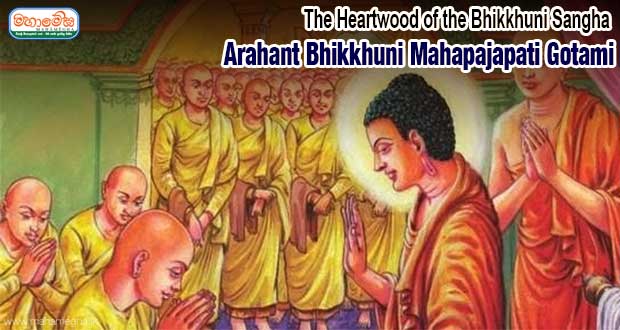
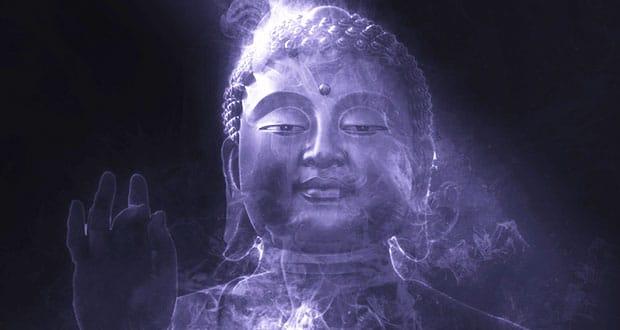
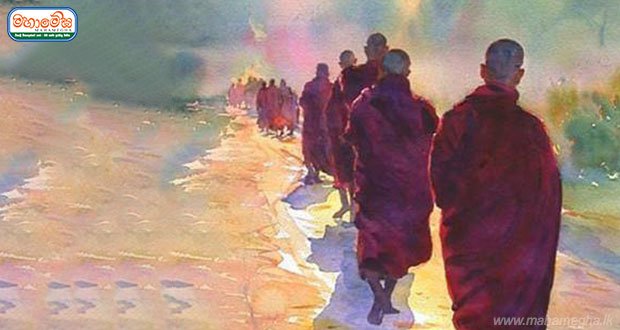
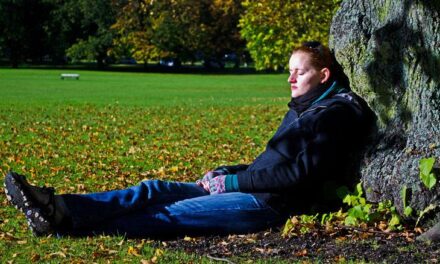




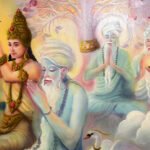

Recent Comments